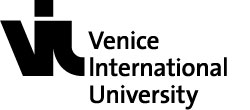F2006 Gender Studies: Gender Issues in Education
Professors
Schedule
Course Description
Education globally has seen enormous change over the past several decades, not the least being the change in the ways in which gender has influenced not only access to education, but also how education is viewed by teachers and learners, in the ways in which it is conducted and managed, and the policy decisions. This course will examine the multiple perspectives associated with gender in education from a multinational perspective, exploring the shift in the gender gap in access to education and academic performance, and the misbalances in teachers in decision-making and at various levels of education. The disadvantage for girls in many countries to receive education has slowly started to give way as women fight for their right for education—particularly primary and tertiary education—but this is often slowed by the perceptions of family regarding the value of education and how it can impact children later on in life. Many career pathways remain closed for women in certain fields in higher education, with some fields being clearly dominated by men, with stereotypes persisting with regards to women’s ability to perform adequately in careers that these courses of education lead to. It should be noted, however, that there are also disadvantages for boys as well, which is evidenced in some countries with the lack of motivation and drive shown by a steadily increasing number of male students, and a widening gap in achievement that sees girls greatly outperforming boys in secondary and tertiary levels of education.Problems also exist in the ways in which male and female teachers are often assigned to particular teaching roles, with females dominating lower levels of education and males dominating higher levels.This has implications for both males and females, where males are often unable to get jobs with young children, and females fighting for equality in higher education. Other issues covered in the course will include single-sex schooling, gender and literacy, teaching methodology, inequality in the classroom, sex education and the construction of gender, gender differences in classroom dynamics, and gender issues in assessment. In this way, this course seeks to explore issues relating to education from the perspective of receivers, givers, administrators, and policy-makers of education in various contexts so that students may see the potential difficulties facing students and teachers ranging from early education to higher education, and to allow students to consider how some of these problems may be alleviated. Classes will consist of going through selected readings and carrying out active discussion in class where students can bring their own views and experiences into the classroom.
Learning outcomes of the course
The primary purpose of this course is to broaden awareness of the issues associated with gender in education globally, so that students can have a balanced perspective regarding what the problems faced are by men and women in education. Through discussion of these problems, it is hoped that the students will be able to provide solutions to some of these problems in their future learning and teaching environments.
Teaching and evaluation methods
The course will consist of short lectures which include ongoing discussions on the topics covered each week. Grades will be assigned for active participation in-class discussion (30%), completion of weekly online forums based on the readings and lectures (30%), and a final written assignment (40%).
Bibliography
Diprati, T.A., & Buchman, C. (2013). The rise of women: The growing gender gap in education and what it means for American schools. New York: Russel Sage Foundation. Skelton, C., Francis, B., & Smulyan, L. (Eds.). (2006). The SAGE handbook of gender and education.
London: SAGE Publications Ltd.




















